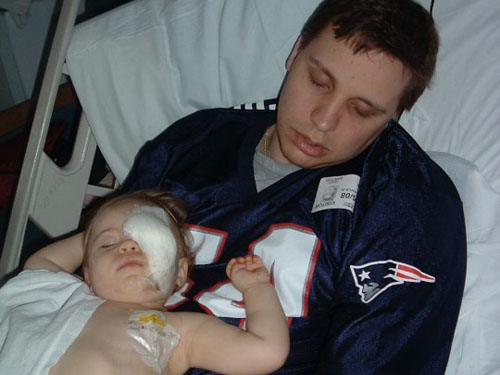
Cancer, Loss, Change
More important than the content of our sharing, it also let us share ears; it let us simply be there to "say." In The Community of Those Who Have Nothing in Common, Alphonso Lingis (1994) speaks to the impossibility of visiting the bedside of a dying parent. Particularly, playing with echoes of Levinas' distinction between the said and the saying (in Levinasian terms, the ontological and the ethical, which might be conceptualized as being and becoming), Lingis notes that we often come to find ourselves, in this moment-before-death-that-calls-for-something-to-be-said, with absolutely nothing to say. But, he argues, "What is imperative is that you be there and speak; what you say, in the end, hardly matters" (p. 108).
So, too, with the retinoblastoma community. Social media provide(d) us, as parents, with the ability to say. Another sharing amongst this community is the commonplace discussion of friendship—every parent has the story of good friends who simply disappear after the diagnosis: The disappearance of many friends who simply could not imagine what could be said and therefore offered no saying. Of course, there is also the rise of other acquaintances into friends, who perhaps understood the futility of whatever they said but also recognized the importance of an attending ear. Those people know who they are. We thank them.To recognize the difference between the saying and the said is to unsettle our (and I mean this broadly to include most who dwell within institutions of higher learning) disposition toward content/knowledge. The said falls within the realms of the ontological, the hermeneutic, the epistemological. The saying, however, attempts to capture something more primal and elusive. In place of the (said) content of a communicative utterance, attention to the saying seeks to interpret the significance of the unsignified performance of an utterance. It is through saying, I believe, that we nourish our sense of place within the infinity of space. And new ways of saying (e.g., new technologies) likely reveal to us other orientations toward things-said and highlight the peculiarities of our ways of saying.